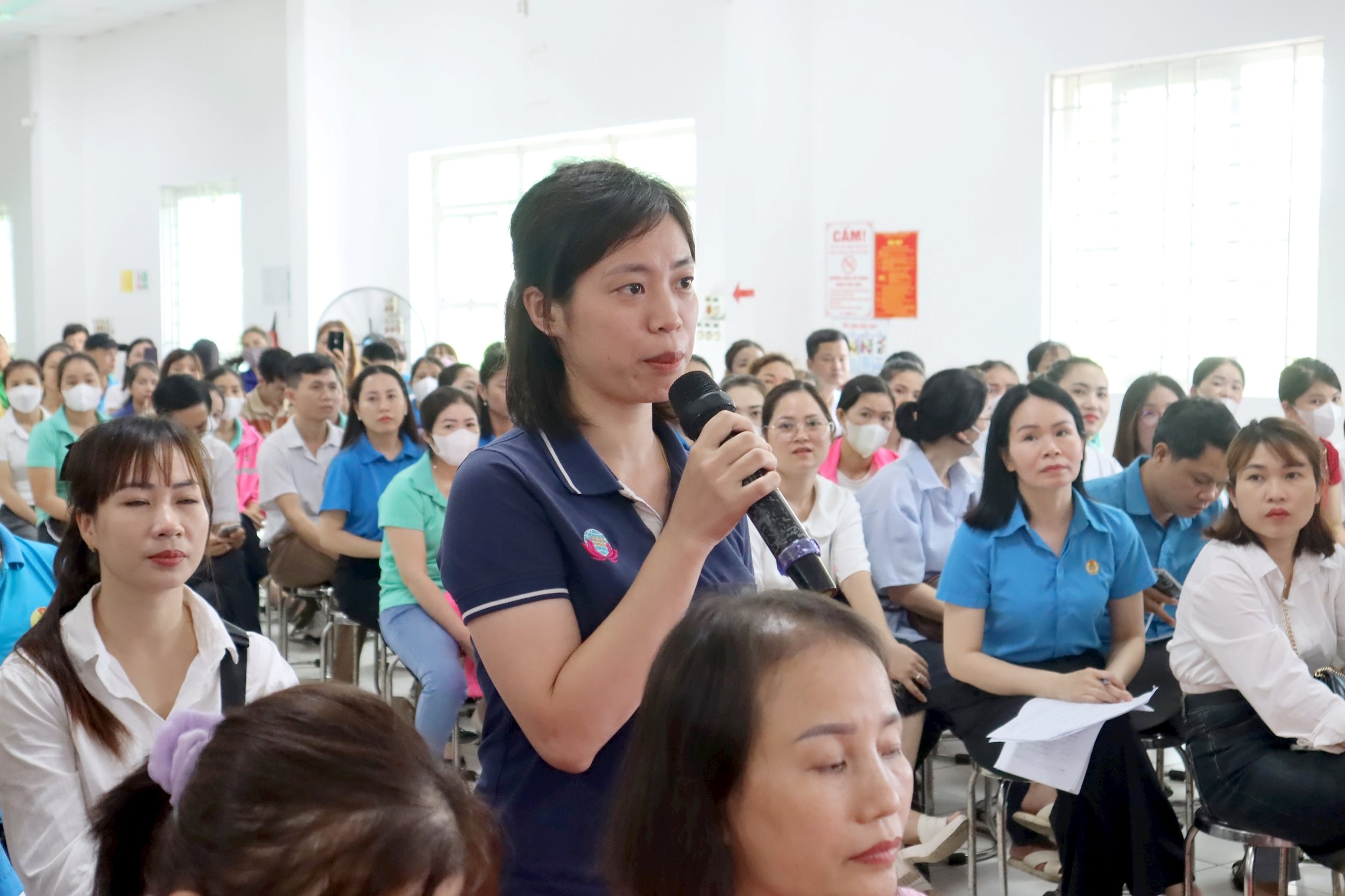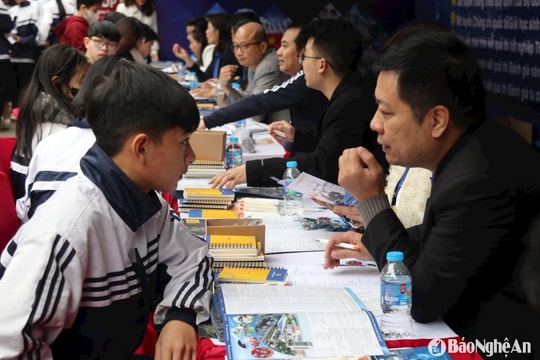8 new policies take effect from June 2025
In June, a series of new policies such as: regulations on electronic invoices for business households and individual businesses; arrangement of inspection apparatus; policies for senior experts... will come into effect.
1. From June 1, 2025, new points on invoices and documents will take effect.
Accordingly, Decree 70/2025/ND-CP was issued by the Government, effective from June 1, 2025, to amend and supplement a number of articles of Decree 123/2020/ND-CP.
According to Decree 70/2025/ND-CP, there are some highlights such as:
- Tax and fee receipts are integrated into electronic invoices for buyers.
- Prohibit falsifying invoices and not transferring data to tax authorities as prescribed.
- Add new regulations on invoice usage
2. Replace contract templates related to derivative securities
Article 2 of Circular 14/2025/TT-BTC has replaced Form No. 01 and Form No. 02 of the Appendix issued with Circular 58/2021/TT-BTC with two new forms:
Form No. 01: Clearing and payment entrustment contract between non-clearing member and general clearing member.
Form No. 02: Contract for opening a derivative securities trading account between a securities company and a customer.

3. Cases where union dues collection is suspended in effect
According to Section 1 of Official Dispatch 4133/TLĐ-ToC 2025, it is stipulated that the organization will be reorganized, dissolved, downgraded, and the activities of the executive committee, standing committee, and inspection committee of the trade unions at the level directly above the grassroots level and the grassroots trade unions of administrative agencies, enterprises, public service units receiving 100% of the state budget salary, and the armed forces will be terminated in accordance with the spirit of Resolution 60-NQ/TW in 2025.
The time to complete the work of dissolving the trade union organization, ending the activities of the executive committee, standing committee, and trade union inspection committee mentioned above is before June 15, 2025.
Time to stop collecting union dues and trade union funds for union members, grassroots trade unions of administrative agencies, public service units receiving 100% of state budget salary, and armed forces (not subject to the Vietnam General Confederation of Labor) from June 1, 2025.
4. From June 15, 2025, additional disciplinary action of dismissal will be applied to those who handle administrative violations.
In Clause 20, Article 1 of Decree 93/2025/ND-CP, Article 29a was added after Article 29 of Decree 19/2020/ND-CP, stipulating the additional form of disciplinary dismissal in the enforcement of the law on handling administrative violations applicable to officials in one of the following cases:
- Disciplined by dismissal and reoffending;
- First-time violations causing particularly serious consequences, in the following cases: Failure to promptly amend, supplement, cancel or issue new decisions when detecting errors or violations in handling administrative violations; Failure to fully and accurately implement conclusions of inspections of law enforcement on handling administrative violations...
5. From June 15, 2025, the regime and policies for senior experts will take effect.
The Government issued Decree No. 92/2025/ND-CP regulating the regime and policies for senior experts, applicable to Party and State agencies at the central level. The Decree takes effect on June 15, 2025.
According to the decree, the subjects of application include cadres, civil servants, public employees; retired people; people working outside the political system (not on the payroll of agencies and organizations in the political system), including both Vietnamese and foreigners.
Senior experts must meet the standards and conditions according to Regulation No. 180-QD/TW dated July 11, 2024 of the Secretariat. Regarding the regime and policies, senior experts are cadres, civil servants and public employees who, when appointed, will cease to hold their old positions and will be paid according to the senior expert salary table issued with Decree 204/2004/ND-CP.
Specifically: In case of holding a leadership or management position with a position allowance coefficient of 0.9 or less or not holding a position, the salary will be ranked at level 1 (coefficient 8.80) and enjoy the same benefits as a Senior Leadership Assistant.
In case of allowance coefficient from 1.0 to 1.25, salary will be ranked at level 2 (coefficient 9.40) and enjoy benefits equivalent to the title of Deputy Minister. In case of allowance coefficient from 1.30 or higher, salary will be ranked at level 3 (coefficient 10.0) and enjoy benefits equivalent to the title of Minister.
If the new salary coefficient is lower than the total old salary coefficient, the senior expert is entitled to the reserved difference coefficient.
In addition, based on work performance and financial capacity, the agency employing senior experts can apply other policies and regimes such as bonuses and support for working conditions.
6. From June 15, 2025, the Circular guiding the management of labor, wages and bonuses in state-owned enterprises takes effect.
Accordingly, Circular 003/2025/TT-BNV was issued by the Ministry of Home Affairs to provide detailed guidance on labor management, wages, remuneration and bonuses as prescribed in Decree 44/2025/ND-CP, with the following highlights:
- Principles of labor and wage management
According to Article 3 of Circular 003/2025/TT-BNV, the principles of labor management, wages, remuneration and bonuses are based on profit targets, labor productivity and profit margins. For non-profit enterprises, the target of total revenue minus total costs is used instead.
- Manage salary scales and payroll
According to Article 4 of Circular 003/2025/TT-BNVEnterprises are required to develop and issue salary scales, payrolls, and salary allowances according to regulations. Every year, enterprises need to review and adjust salary levels to ensure compliance with regulations.
- Regulations on bonuses and benefits
According to Articles 17 and 18 of Circular 003/2025/TT-BNV, bonuses and benefits for employees, Executive Board, Board members, and Supervisors are implemented according to regulations, based on salary levels from the implemented salary fund.

7. From June 16, 2025, foreign investors are only allowed to open one indirect investment account at one bank.
According to Point c, Clause 2, Article 5 of Circular 03/2025/TT-NHNN, foreign investors who are investment organizations under foreign governments or foreign investors who are investment and financial organizations under international financial organizations of which Vietnam is a member are allowed to open additional indirect investment accounts corresponding to the granted securities transaction codes, in which each investment portfolio deposited at a custodian bank that has been granted 01 (one) securities transaction code is allowed to open 01 (one) corresponding indirect investment account.
8. From June 20, 2025, adjust the form of sending reports to the State Securities Commission.
At Clause 3, Article 1 of Circular 20/2025/TT-BTC amends and supplements a number of articles at Clause 10, Article 7 of Circular 51/2021/TT-BTC as follows:
- Reports as prescribed in Clauses 1, 2, 3, 4, 5, 6, 7, Article 7 of Circular 51/2021/TT-BTC are made electronically on the foreign investor activity management system of the State Securities Commission and must be stored for a minimum period of 05 years.
In case it is not possible to send reports through the State Securities Commission's foreign investor activity management system due to force majeure reasons such as network or server system failure, inability to use digital certificates and other force majeure reasons, reporting entities are responsible for sending reports in paper form with electronic data files attached and notifying the State Securities Commission of the reasons for not being able to send reports through the system.
Immediately after overcoming the force majeure situation, the reporting entity is responsible for fully reporting on the foreign investor activity management system of the State Securities Commission.




